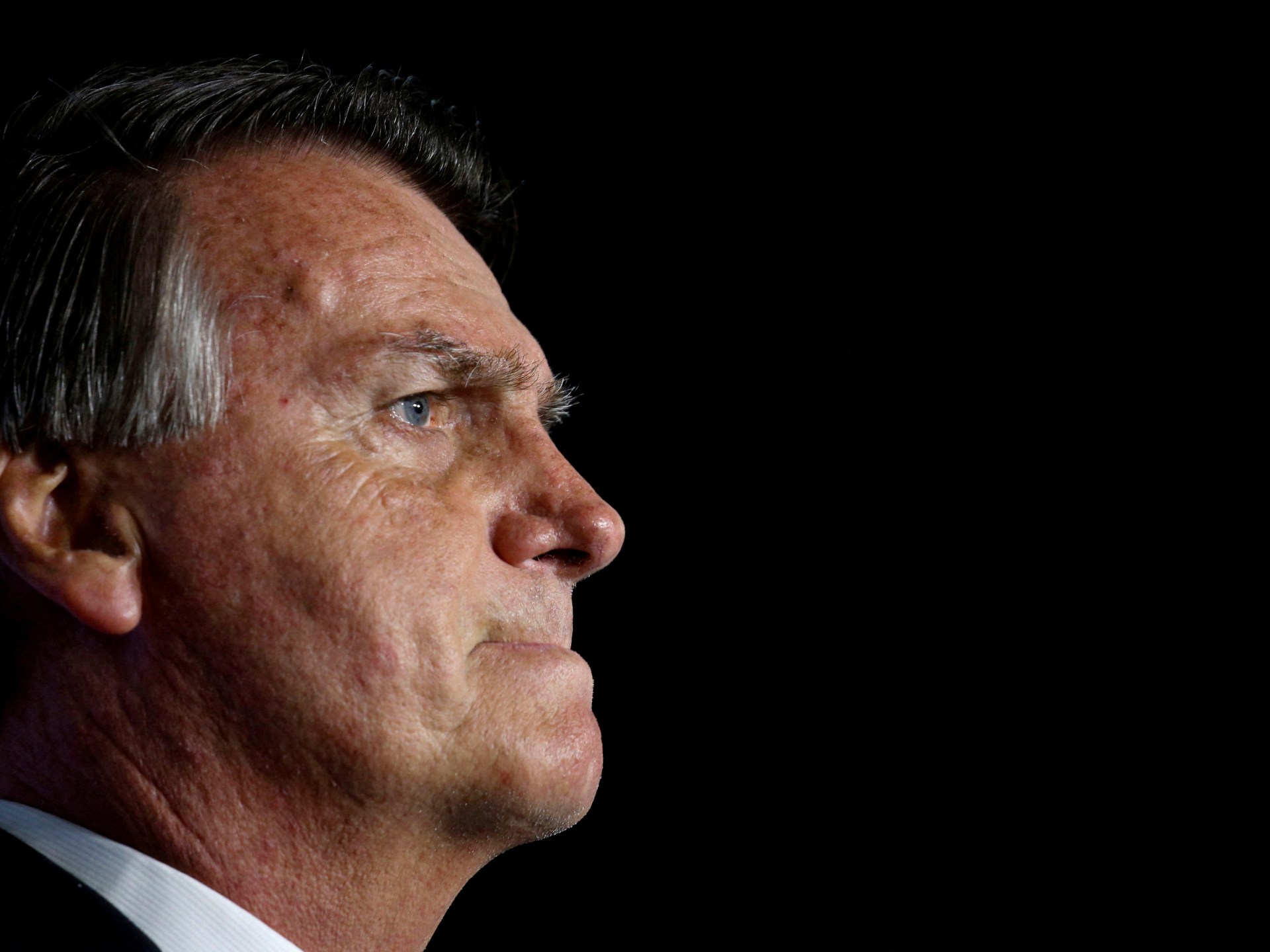South America
Brazil’s former President Jair Bolsonaro slams coup accusations against him

The Far-Right Leader’s Rebuttal: Bolsonaro Denies Coup Allegations and Attacks Brazil’s Government
Introduction to the Controversy
Former Brazilian President Jair Bolsonaro has sparked fresh controversy by dismissing the recent criminal charges against him as baseless and politically motivated. The far-right leader, who lost the 2022 presidential election to current President Luiz Inácio Lula da Silva, was indicted for his alleged role in an attempted coup to cling to power. The charges, brought by Brazilian authorities, accuse Bolsonaro and 33 others, including former ministers and a retired navy chief, of plotting to undermine democracy. Bolsonaro responded defiantly on social media, labeling the charges as a ploy by an "authoritarian regime" to silence opposition. This escalating political drama has once again placed Brazil at the center of global attention, raising questions about the stability of its democratic institutions.
Bolsonaro’s Defense and Criticism of the Government
In a lengthy post on the social media platform X, Bolsonaro denied the allegations, calling them "vague accusations" designed to discredit him and consolidate power. He drew parallels with leftist governments in Venezuela, Cuba, Bolivia, and Nicaragua, where opposition leaders have been similarly accused of plotting coups. "The trick of accusing democratic opposition leaders of plotting coups is nothing new," Bolsonaro wrote, arguing that such tactics are part of a playbook used by authoritarian regimes worldwide. He claimed that these regimes fabricate charges, exploit concerns about democracy, and persecute opponents to maintain control. Bolsonaro’s post reflects his longstanding strategy of framing himself as a victim of political persecution while undermining the legitimacy of Brazil’s current government.
The Criminal Charges Against Bolsonaro
The indictment against Bolsonaro marks a significant escalation in the legal challenges he faces. Prosecutors allege that he orchestrated a multi-faceted scheme to remain in power after his 2022 election defeat. Among the most serious charges are accusations that Bolsonaro and his supporters plotted to poison President Lula and assassinate Supreme Court Justice Alexandre de Moraes, a prominent critic of the former president. The charging document describes Bolsonaro as the leader of a "criminal organization" driven by an "authoritarian project of power." While Bolsonaro is unlikely to be arrested before his trial, the charges represent a major blow to his political ambitions, particularly as he is currently barred from holding public office until 2030.
Historical Context and Comparisons to Global Events
The indictment comes after a two-year investigation by Brazilian federal police into Bolsonaro’s alleged role in fostering an election-denying movement. This movement culminated in the January 2023 riots in Brasília, where thousands of Bolsonaro supporters stormed government buildings, including the presidency, Congress, and the Supreme Court. The violence drew comparisons to the January 6, 2021, attack on the U.S. Capitol by supporters of former President Donald Trump. Bolsonaro has consistently denied any involvement in the riots, noting that he was in Florida at the time. However, the charges suggest that prosecutors believe he played a central role in inciting the unrest and undermining Brazil’s democratic processes.
Reactions and Implications for Brazilian Democracy
President Lula, when asked about the charges, emphasized the importance of due process. "If they prove that they did not attempt a coup, and if they prove that they did not attempt to kill the president, the vice president, and the president of the Supreme Electoral Court, they will be free," Lula said. "If the judges conclude that they are guilty, they will have to pay for the crime they committed." His remarks reflect the delicate balance between upholding the rule of law and respecting democratic principles in a deeply polarized society. The case has reignited debates about the future of Brazilian democracy, with many observers warning that the indictment could further divide the nation and embolden Bolsonaro’s supporters.
Conclusion: A Critical Moment for Brazil’s Democracy
The indictment of Jair Bolsonaro represents a critical moment in Brazil’s political history, highlighting the ongoing struggles between democratic institutions and authoritarian tendencies. Bolsonaro’s fiery rebuttal and the seriousness of the charges against him underscore the high stakes involved. As the legal process unfolds, the world will be watching closely to see how Brazil navigates this challenging chapter. The outcome of the trial will not only determine Bolsonaro’s political fate but also set a precedent for how democracies respond to threats from within. For now, the tension between Bolsonaro’s defiance and the government’s commitment to accountability continues to define Brazil’s uncertain political landscape.











